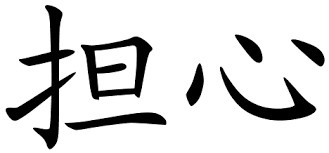Job 38:25-41; 40:1-14; 41:1-8; 42:1-6 & Matthew 6:25-34
Following a give and take dialogue between Job and his four friends about the existence of evil in the world (Theodicy), God speaks out from the whirlwind, questioning Job. [running from 38:1 to 42. We wrestled with it last week.]
This is the climax and the denouement of the book. God speaks in a poetic series of rhetorically questions asked ironically. Clearly Job cannot answer yes to any of the questions. On the first level God is asserting that God is God and Job is not. But on another level, one that can only be reached only through the subversion and de-construction of God’s rhetorical questioning, lies an affirmation of the radical importance of human life. When we begin to de-construct, or look underneath, the affirmation of divine power, we have to ask “what are we then?; that God would care about us?” If God is all-powerful and all-knowing, bigger then the biggest thing we can imagine in our minds, then what good are we, we don’t even begin to measure up? This is the question asked in Psalm 8, and also in the hearts of Adam and Eve (Genesis 2 and 3). We, like Job, are invited not to be passive observers, but rather to participate in the realities of creation. God is God and we are not, but…. God involves us, calls us, creates us as creative creatures formed in the divine image. This image is one of creativity and connectedness, of relationship and agency.
God continues to show Job the wild beauty of creation. The horse runs and the eagle soars, rejoicing in their freedom. Leviathan, that fiercest of creatures, answers only to its Maker. It cannot be controlled and will not be used by human beings. Humanity, in this vision of the world, is not the center of creation. Instead, creation is made to praise its Maker. At the same time, humanity (in the person of Job) is the only passenger on this grand tour of the cosmos. God invites Job to see the world from a God’s-eye point of view, and to delight in its beauty as God does. Job is not the center, but unique.
Job responds to these speeches of God by recanting (a better translation in vs. 6 than “I despise myself”) and by acknowledging that he spoke of things he didn’t understand. The world is not a chaotic and disordered place, as Job has early claimed. God is not vindictive and overly concerned with human sin, as Job had argued (chapter 7). God’s concern for the world (including humanity) is far more expansive than Job had imagined. Humanity has a place in that world, but it is not what Job or his friends had imagined; that is, humanity as the center of creation and the sole recipient of God’s attention. God’s concern is for all of life and all of creation, including humanity. In the God-speeches, Job’s vision is expanded and Job’s hope is fulfilled: He has seen God. In the gospel reading Jesus speaks to this participatory creation and interdependent relationship God has with us. He calls us to move beyond our fears and anxieties, which keep us from living fully as we cling to the life we have and are afraid to lose.
Questions for Active Reflection:
- When are you overwhelmed with worry, or anxiousness? How do you step back from the brink of that worry?
- How do you experience the power of God as reassuring?; as reframing of what you’re encountering in life?
- How do you understand God’s call for us to be present in creation, but not part of the catalogue of creatures named by Yahweh? How are we called to be participants in God’s on-going work of creation? How might our participation in creation, through the life of Jesus of Nazareth, be the way to overcome worries and anxiety, to be present here and now for what God is giving to us?
